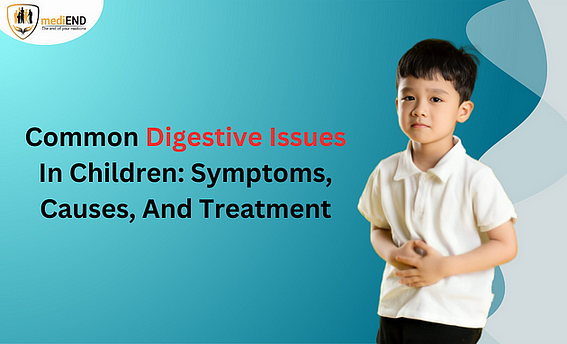Children's Digestive Problems: Causes And Treatments
As parents, we want our children to be healthy and happy. However, one aspect of their health that can often be overlooked is their digestive system. Children are just as susceptible to digestive issues as adults, and it’s important for parents to be aware of these issues and how to address them. This article aims to provide information on common digestive issues in children, their causes, and potential treatments. Understanding the digestive system in children is crucial in identifying and addressing any potential issues. Children’s digestive systems are different from adults’, making them more vulnerable to certain problems. In this article, we will discuss the basics of the digestive system in children and how it differs from adults.
Understanding Children’s Digestive Problems
The digestive system is responsible for breaking down food and absorbing nutrients to provide energy for the body. In children, the digestive system is still developing and may function differently than adults.
- Children have a smaller stomach capacity and a faster digestion process compared to adults. This means they may need to eat smaller meals more frequently.
- Children also have a less developed immune system, making them more susceptible to Digestive Issues such as infections or food allergies.
Common Digestive Issues in Children
When it comes to digestive problems in children, there are a few common issues that parents should be aware of. These issues can range from mild discomfort to more serious conditions that can impact a child’s daily life. Some of the most common digestive issues in children include:
- Constipation
- Diarrhea
- GERD (gastroesophageal reflux disease)
- Food allergies or sensitivities
- Celiac disease
- Inflammatory bowel disease (IBD)
Causes of Digestive Problems in Children
There are various factors that can contribute to digestive issues in children. Some of the common causes include genetic predispositions, dietary choices, and environmental factors. Children may have inherited certain digestive conditions from their parents, making them more susceptible to developing digestive problems. Additionally, unhealthy dietary habits such as consuming high-fat or sugary foods can also lead to digestive issues. Environmental factors, such as exposure to certain toxins or pollutants, can also affect the digestive system in children. It is important for parents to identify the possible cause of their child’s digestive problems in order to effectively address and treat the issue. Consulting with a doctor and making necessary lifestyle changes can help manage and prevent further digestive issues in children.
For Treatments and other information visit here -> Children’s Digestive Problems: Causes And Treatments

Comments
Post a Comment